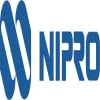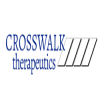In drugmakers' quest to coax immune cells to attack cancer, two might turn out to be better than one.
Recent advances in cancer therapeutics have centered on the might of the body's defenders to recognize and kill tumor cells. Seeking to help the immune system "see" cancers, researchers have turned to treatments like checkpoint inhibitors and CAR-T cell therapy.
At this year's annual meeting of the American Society of Hematology, however, another approach has shown promise in recruiting the immune system against lymphoma and multiple myeloma.
Traditional antibody-based cancer treatments take aim at proteins, called antigens, that are found on the surface of tumor cells. Rituxan (rituximab), for example, targets a protein called CD20 that's almost universally found on B-cell malignancies. In this set-up, both short ends of the Y-shaped antibody bind to the targeted antigen.
So-called bispecifics, by contrast, simultaneously lock onto antigens expressed by both tumor and immune cells, seeking to bring the two together in a lethal marriage for the cancer. In this way, bispecifics act as a kind of guide for the immune system, activating and chaperoning the T cell to attack the tumor.
At ASH, initial looks at compounds from Amgen, Roche and Regeneron, among others, suggest the dual-targeting antibodies could carve out a place in the fast-moving field of immunotherapy.
"The successes we've seen with checkpoint inhibitors, CAR-T cell [therapy] are really going to propel the field of bispecifics forward," said Laurie Sehn, a clinical associate professor at the University of British Columbia and an investigator on a Roche bispecific study, in an interview.
At the same time, bispecifics could offer a simpler and competitive challenge to the more complex CAR-T therapies — one reason the early data at ASH has drawn attention.
Another arrow
Amgen holds the first approval of a bispecific in the U.S., winning an OK for Blincyto (blinatumumab) for a certain type of acute lymphoblastic leukemia in 2014.
So it's fitting that the biotech arrived in San Diego with some of the more anticipated data on a bispecific compound.
At ASH, Amgen presented early results on a pair of drug candidates: AMG420, which binds to an antigen called BCMA to treat multiple myeloma, and AMG330, which binds to a protein called CD33 to treat relapsed or refractory acute myeloid leukemia. Both also latch onto CD3, which is expressed by T cells.
Of the two, attention largely centered on AMG420 due to impressive data from September that showed all five patients treated with the therapy achieved complete responses.
The fuller dataset unveiled Monday fell short of that mark, but provides support for Amgen to advance research of the compound.
Of 42 patients who received AMG420 at varying doses, clinical responses were seen in 13 patients, seven of which were complete responses. Among those on the recommended dose, seven of 10 responded.
Two patients have died from adverse events during the study, though Amgen said those events are not considered related to AMG420.
"In both these diseases, we envision that these tools will really give physicians another arrow in their quiver."

Greg Friberg
Therapeutic area head, Amgen
Greg Friberg, vice president and therapeutic area head at Amgen, noted in an interview with BioPharma Dive that the responses seen with AMG330 haven't been as long-lasting as the company and patients would like. Still, the early data warrant further investigation of both compounds.
"In both these diseases, we envision that these tools will really give physicians another arrow in their quiver," Friberg said.
"These studies were Phase 1 studies, highly pretreated patients, monotherapy studies; we think that these may do their best activity actually in settings where they're sequenced in rational combinations, rational sequences after de-bulking therapies. And those are obviously the types of experiments we'd like to set moving forward," he added.
Others were more skeptical.
"The September view got a lot of people excited; and then this abstract looks to be a lot more patients with a lot less incredible responses," Craig Hofmeister, an acting associate professor at the Emory University School of Medicine, told BioPharma Dive ahead of the AMGN420 presentation at ASH.
Bispecifics versus BiTEs
Amgen's bispecifics look a little different than others in the field, however. Termed BiTEs, or bispecific T cell engagers, Amgen's antibodies lack a full-sized central component — the vertical segment of an antibody's "Y" shape.
This has the side effect of making BiTEs less stable, requiring continuous infusion to have a therapeutic effect. Blincyto, for example, is infused intravenously over 28 days through a portable pump.
Select bispecific compounds highlighted at ASH
| Compound | Developer | Binding sites | Tumor type |
|---|---|---|---|
| AMG 420 | Amgen | BCMA/CD3 | Multiple myeloma |
| Mosunetuzumab | Roche | CD20/CD3 | B-cell NHL |
| REGN1979 | Regeneron | CD20/CD3 | B-cell NHL |
| RG6026 | Roche | CD20/CD3 | B-cell NHL |
*NHL=Non-Hodgkin lymphoma; FL=Follicular lymphoma SOURCE: Companies, ASH abstracts, ASH presentations
Roche and Regeneron, by contrast, presented results at ASH of full-length bispecific compounds in non-Hodgkin lymphoma (NHL).
Roche, which has eschewed heavy investment in CAR-T therapy, came to the meeting with data on two compounds. The most advanced, mosunetuzumab, has yielded response rates in relapsed or refractory NHL patients that UBC's Sehn called a strong proof of concept.
Overall, roughly 40% of the 66 patients included in the study abstract responded. In 18 follicular lymphoma, a subtype of NHL, that rate climbed to 61%. Patients who experienced a complete response appeared to have durable remissions, with some remaining in response out to nearly two years.
"For reasons that we can't yet identify, patients divide themselves into responders with an excellent prolonged response versus those who don't respond — really much like we are seeing with the CAR-T cell therapy as well," said Sehn, who's listed as an author on the mosunetuzumab abstract.
For Regeneron, the conference was a chance to showcase its progress in immuno-oncology, an area where it's trailed other companies.
REGN1979, as its compound is called, posted results strong enough to spur the biotech to plan a potentially registrational Phase 2 study of the compound in follicular lymphoma next year.
In one small subset of 10 follicular lymphoma patients, treatment with REGN1979 led to a response in all 10, eight of which were complete.
While the initial response rates have prompted drugmakers to move compounds into more advanced testing, Sehn cautioned much remains unclear.
"I think it is still very early days in evaluating many of these bispecifics," the medical oncologist said. " We're not really sure which subtypes of lymphoma might preferentially benefit. In theory, it has broad applications for all of them."
And responses, while encouraging, don't necessarily mean lasting benefit. Across Amgen's, Roche's and Regeneron's studies, the most common reason for trial discontinuation was disease progression.
Matching up with CAR-T
As it happens, non-Hodgkin lymphoma and multiple myeloma are two areas where CAR-T cell therapy has made the largest strides. Because of that, progress from bispecifics has raised the prospect of a competitive challenge.
Bispecifics, in principle, could offer a number of advantages over CAR-T therapy for relapsed or refractory patients. For one, the treatments are simpler than the individualized cell treatments. Patients can be dosed immediately with a bispecific, rather than waiting for a drugmaker to construct a CAR-T cell dose out of their immune cells.
That off-the-shelf convenience can have real implications for patients who have failed numerous other therapies and can't necessarily afford to delay treatment for the two to three weeks it takes to manufacture a CAR-T therapy.
"The balance between efficacy and toxicity is not as favorable for the CARs as opposed to the bispecifics."

Michael Wenger
Senior group medical director, Roche
Bispecifics, while still toxic in their own right, could also avoid some of the neurological toxicity seen with CAR-T treatments.
"We feel currently the balance between efficacy and toxicity is not as favorable for the CARs as opposed to the bispecifics," said Michael Wenger, senior group medical director at Roche. "We are quite confident that bispecifics will provide equal efficacy, perhaps with lesser toxicity and the advantage of being off the shelf relative to other technologies."
But bispecifics have drawbacks, too. For Amgen, the continuous dosing schedules required for BiTEs are a significant commercial hurdle.
More fundamentally, the very design of bispecifics could pose a challenge too. By dedicating one binding site of an antibody to seeking out T cell antigens, bispecifics have less available binding sites to lock onto the tumor — a principle known as avidity.
As it stands, CAR-T is on the market in non-Hodgkin lymphoma and companies like Celgene and Bluebird bio are moving quickly to secure approvals in multiple myeloma. Bispecifics could add a competitive wrinkle to those plans, but the drawbacks to each suggest neither will represent a definitive option.
"Everyone hopes for a single infusional cure," said Emory's Hofmeister. "That's what we all want, that's what makes you excited to work on this: is the hope that you can go out of business."
Correction: A previous version of this article misidentified which compound Amgen's Greg Friberg indicated as having responses shorter than the company would've liked to see.























